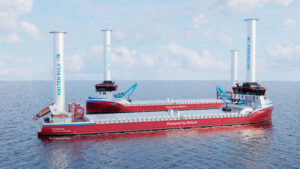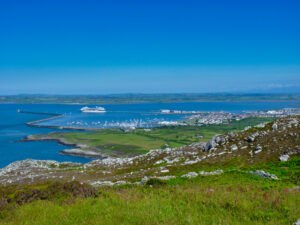The European Union is about to modernise its outdated legislation on maritime safety and pollution and to bring it in line with new proposals to support clean and modern shipping.
The European Commission (EC) unveiled on Thursday five legislative proposals to update EU rules on maritime safety and prevent water pollution from ships. The proposals seek to align EU rules with international standards, enhance implementation and enforcement through digitalisation, and support “clean and modern shipping”.
The package includes three proposals which are focusing on modernising and improving maritime safety rules. They pay special attention to port state control and maritime accident investigations, strengthening the enforcement of rules to reduce incidents and accidents, and prevent loss of human life and environmental pollution.
Requirements have been proposed for flag state inspections based on international rules, as well as specific EMSA trainings for national administrations to enhance the controls that member state authorities have over their fleets. This is expected to improve maritime safety and reduce the risks of environmental pollution, ensuring that EU flag States continue to stand for high quality shipping services. The proposal facilitates information-sharing between flag States on the results of inspections they carry out and compliance issues in general.
Additionally, Port State control will be extended to cover additional international rules, such as new Conventions on ballast water and sediments and removal of wrecks. The proposal also updates the way ships are targeted for inspection, to reflect new requirements and will attach more importance to the environmental related performance and deficiencies of ships, in determining their risk profile.
Other changes will further improve Member States’ capacity to detect and correct lack of compliance with safety or with environmental and pollution prevention rules and standards.
The scope for Port State control and accident investigation will be extended for fishing vessels, where significant safety concerns persist. Member States can choose to apply port State control for fishing vessels measuring over 24 metres calling at EU ports. Flag State and port State control operations will be digitalised and the uptake of electronic certificates will be encouraged. This will be made possible via to EMSA’s IT systems and databases.
The proposals also aim to prevent any type of illegal discharges into European seas, which is essential to lower the environmental impact of maritime transport activities and preserve the marine ecosystem.
The proposal aligns EU rules with international regulations and extends the scope to cover a wider range of polluting substances. In addition to illegal discharges of oil and noxious liquid substances, which were covered under existing rules, the Commission proposes to also include discharges of harmful substances carried in packaged form, sewage, garbage, as well as discharge waters and residues from Exhaust Gas Cleaning Systems (scrubbers).
Among the proposals are also the optimisation of EMSA’s surveillance and information sharing database, CleanSeaNet, and the strengthening of a legal framework for penalties and their application, enabling national authorities to take adequate action in case of illegal discharge and impose penalties, such as fines.
The proposal includes also the updating of EMSA’s mandate to better reflect the growing role that the agency plays in many maritime transport areas, including safety, pollution prevention and environmental protection, among others, as the Commission and the Member States will rely on EMSA’s support when implementing the FuelEU Maritime Regulation and extending the EU Emissions Trading System to maritime transport.
The proposals will now be considered by the European Parliament and the Council in the ordinary legislative procedure.



